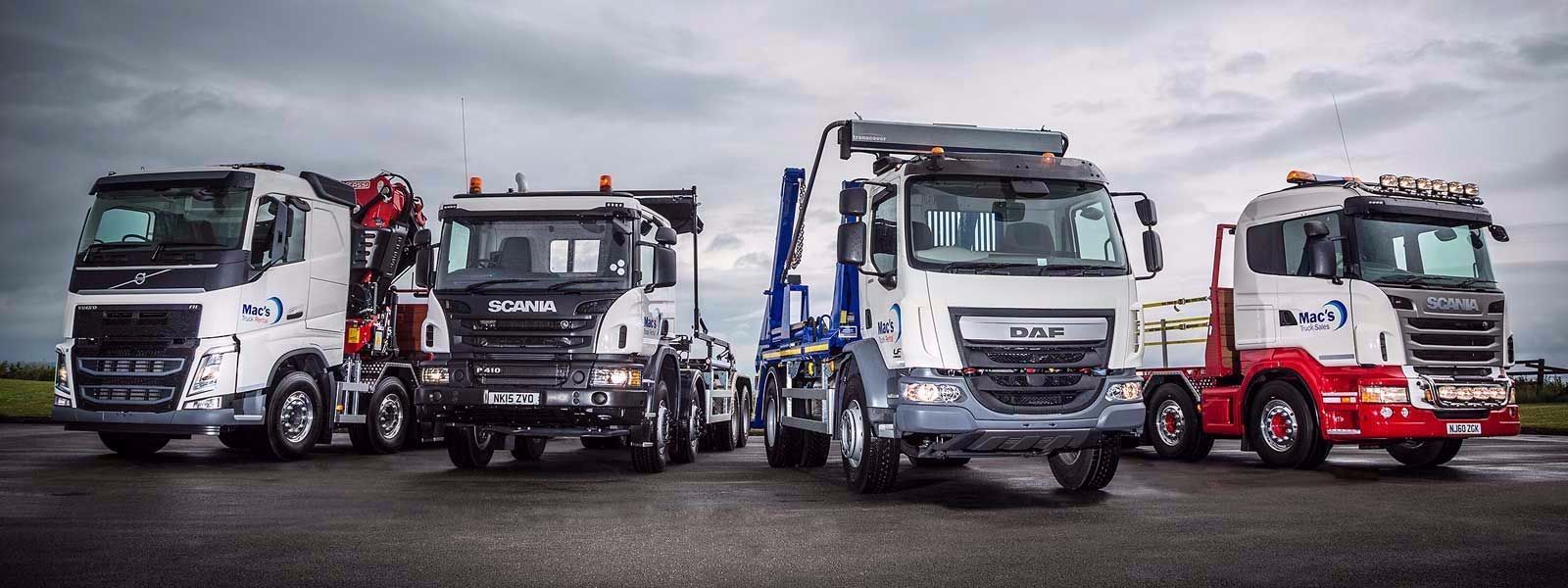At Mac’s Truck Rental, we’re experts in both truck rental and sales – and take the time to understand the needs of each of our customers, making sure the advantages of both are clearly communicated.
For businesses in particular, taking out truck contract hire on a big financial commitment can make a big difference to the overall costs involved, both short term and long term.
Short term, the main benefit to a business is that the initial outlay is much less than when purchasing a vehicle, meaning companies with lower overheads can gain access to quality trucks they need to complete their work. This also means that, especially in the short term, prices don’t have to rise to cover the large expense of buying a truck, keeping you as competitive as possible.
Long term, truck contract hire gives you peace of mind both operationally and financially.
Below, we’ll guide you through the various advantages of working with us to create a truck contract hire package to suit you, and how it can benefit your business in the long run.
Financially
Lower Monthly Costs
When taking our truck contract hire, the monthly price you pay covers the depreciation of the truck, rather than the actual cost of the truck in whole. This means that your monthly costs will be much lower than if you were to go down a route of hire purchase.
No Unexpected Vehicle Costs
Your monthly costs are fixed – and we guarantee that for the length of your contract. Therefore if you should ever have any trouble with your vehicle, we’ll make sure it’s fixed as soon as possible, whilst providing you with a replacement vehicle in the meantime.
VAT Benefits of Truck Contract Hire
VAT is only applied to the depreciation of a truck, and not the cost of the truck overall, meaning this saving can be passed on to you. Plus, because this is a business expense, at least 50% of the finance cost is recoverable with truck contract hire, and 100% of the maintenance element of the contract is recoverable.
Operationally
No fuss finding quality trucks
Part of the challenge of using trucks on a daily basis is finding one that is of high quality. With truck contract hire, that’s our responsibility. We only source the highest quality trucks, often building these from new to meet your specific requirements, meaning you don’t need to spend time going through the painstaking process of sourcing trucks.
Minimal administration is required
As servicing and ongoing maintenance is included within contract hire, again this saves you time and money by not having to go through all of the usual checks yourself. We’ll take care of arranging your 6-weekly checks, and will arrange for the standard requirements to be taken care of at times to suit you.
Cost-effective Fleet Management
Because of our existing relationship with truck manufacturers, and our long-standing history purchasing trucks, we can often command better prices, which can be passed on to you. This extends past the purchase of trucks, and also includes the servicing and maintenance side of ongoing truck costs, which benefit our customers because our experienced technicians can get all garage-work completed efficiently and as quickly as possible, minimising downtime.
We have a range of trucks available for long term hire, and can work with you to build something that’s ideal for your line of work. You can learn more about the trucks on offer below:
Skip trucks
Our skip trucks include Euro VI engines, 18 tonne GVW, VDL 14 tonne lift skip equipment plus full ongoing maintenance and company branding.
Beavertail Trucks
Our beavertail trucks come equipped with our own high quality truck bodies, with a range of features including fall arrest systems – protection straps mounted around the entire beavertail truck to meet safety regulations, a fully remote controlled winch system, and Euro VI engines that ensure your business is compliant with London’s Low Emission Zone (LEZ) regulations.
Hook Loaders
Our hookloaders come equipped with VDL hook lifts that are fully remote controlled and reassure you of VDL’s simple & highly reliable operation. Plus, once mounted onto the hook loader, our sheeting system automatically covers open cargo securely at both ends.
Tipper Grabs
Our tipper grabs feature bodies from Thompson, the UK’s Number 1 tipper bodybuilder, which are optimised to deliver strength without compromising the tipper grab trucks payload. Our tipper trucks also come equipped with Epsilon grab cranes, renowned for their performance in recycling, scrap and timber industries with high-performance clamshell buckets.
Lorry mounted cranes
We have Scania, DAF & Volvo lorry mounted crane trucks for hire, with cheesewedge, beavertails and flat bodies, plus FASSI cranes.
Moffett Mounted Curtain Siders
Our truck mounted forklift hire provides you with two high-quality vehicles designed to help you transport large and heavy goods easily: a DAF CF 370 truck with a 26ft curtainside, and a Moffett M5 truck mounted forklift.
